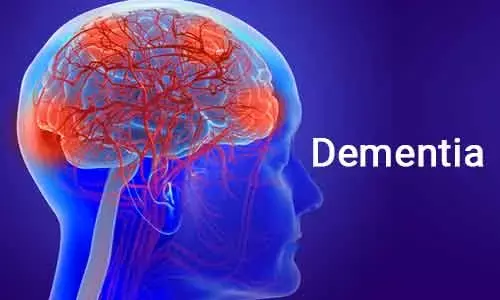- Home
- Medical news & Guidelines
- Anesthesiology
- Cardiology and CTVS
- Critical Care
- Dentistry
- Dermatology
- Diabetes and Endocrinology
- ENT
- Gastroenterology
- Medicine
- Nephrology
- Neurology
- Obstretics-Gynaecology
- Oncology
- Ophthalmology
- Orthopaedics
- Pediatrics-Neonatology
- Psychiatry
- Pulmonology
- Radiology
- Surgery
- Urology
- Laboratory Medicine
- Diet
- Nursing
- Paramedical
- Physiotherapy
- Health news
- Fact Check
- Bone Health Fact Check
- Brain Health Fact Check
- Cancer Related Fact Check
- Child Care Fact Check
- Dental and oral health fact check
- Diabetes and metabolic health fact check
- Diet and Nutrition Fact Check
- Eye and ENT Care Fact Check
- Fitness fact check
- Gut health fact check
- Heart health fact check
- Kidney health fact check
- Medical education fact check
- Men's health fact check
- Respiratory fact check
- Skin and hair care fact check
- Vaccine and Immunization fact check
- Women's health fact check
- AYUSH
- State News
- Andaman and Nicobar Islands
- Andhra Pradesh
- Arunachal Pradesh
- Assam
- Bihar
- Chandigarh
- Chattisgarh
- Dadra and Nagar Haveli
- Daman and Diu
- Delhi
- Goa
- Gujarat
- Haryana
- Himachal Pradesh
- Jammu & Kashmir
- Jharkhand
- Karnataka
- Kerala
- Ladakh
- Lakshadweep
- Madhya Pradesh
- Maharashtra
- Manipur
- Meghalaya
- Mizoram
- Nagaland
- Odisha
- Puducherry
- Punjab
- Rajasthan
- Sikkim
- Tamil Nadu
- Telangana
- Tripura
- Uttar Pradesh
- Uttrakhand
- West Bengal
- Medical Education
- Industry
High blood sugar levels causally linked to unspecified dementia: Study

Earlier studies have reported an association between raised blood sugar levels and the risk of dementia in individuals both with and without diabetes.
Researchers have found in a new study that observational and genetically high blood sugar levels were associated with unspecified dementia.
The findings of the research have been published in the journal Diabetologia.
Dementia is the loss of cognitive functioning—thinking, remembering, and reasoning—and behavioral abilities to such an extent that it interferes with a person's daily life and activities.
The researchers conducted a Mendelian randomization study to test the hypothesis that high blood sugar caused by genetic variation has a causal effect on the risk of unspecified dementia, Alzheimer's disease, and vascular dementia in the general population.
The data from 115,875 individuals from the Copenhagen General Population Study and the Copenhagen City Heart Study. Findings for Alzheimer's disease were validated in a two-sample Mendelian design with 455,258 individuals, including 71,880 individuals with Alzheimer's disease or a parent with Alzheimer's disease.
The researchers found that in observational multifactorial-adjusted analyses, HRs for unspecified dementia, Alzheimer's disease and vascular dementia among individuals with a glucose level higher than 7 mmol/L versus 5–6 mmol/L were 1.15, 0.91, and 1.16, respectively. In genetic causal analyses, a 1-mmol/higher plasma glucose level had RRs of 2.4, 1.4, and 1.2, respectively. Summary-level data from two consortia and the UK Biobank provided an RR for Alzheimer's disease of 1.02.
The researchers concluded that Observational and genetically high plasma glucose are causally related to the risk of unspecified dementia but not to Alzheimer's disease or vascular dementia.
"Our finding that high plasma glucose has a causal effect on the risk of unspecified dementia underscores the importance of glycaemic control in patients with diabetes mellitus and potentially also in individuals with impaired glucose tolerance. Future research should address the causal role and potential disease mechanisms of plasma glucose on the risk of unspecified dementia." authors concluded.
For further reference log on to:
Benn, M., Nordestgaard, B.G., Tybjærg-Hansen, A. et al. Impact of glucose on risk of dementia: Mendelian randomisation studies in 115,875 individuals. Diabetologia 63, 1151–1161 (2020). https://doi.org/10.1007/s00125-020-05124-5
Dr Kamal Kant Kohli-MBBS, DTCD- a chest specialist with more than 30 years of practice and a flair for writing clinical articles, Dr Kamal Kant Kohli joined Medical Dialogues as a Chief Editor of Medical News. Besides writing articles, as an editor, he proofreads and verifies all the medical content published on Medical Dialogues including those coming from journals, studies,medical conferences,guidelines etc. Email: drkohli@medicaldialogues.in. Contact no. 011-43720751


